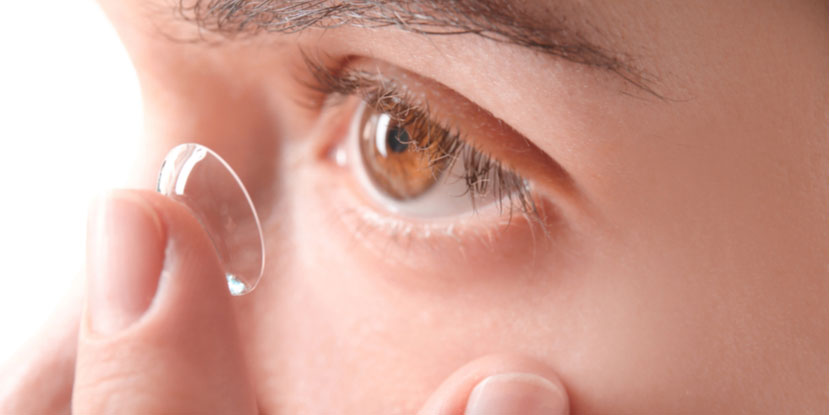Maintaining good dental hygiene is not just about keeping your smile bright and your breath fresh; it’s a crucial component of overall health and well-being. The health of your teeth and gums can have a significant impact on many aspects of your physical health, and neglecting dental care can lead to a range of serious health issues. Here’s why dental care is essential for your overall health:
1. Prevention of Oral Diseases
Regular dental check-ups and good oral hygiene practices can prevent a variety of oral diseases, including cavities, gum disease (gingivitis and periodontitis), and oral cancer. These conditions, if left untreated, can lead to pain, tooth loss, and more serious health complications.
- Cavities: Tooth decay, or cavities, occurs when bacteria in the mouth produce acids that erode the tooth enamel. If not addressed, cavities can lead to infection and more severe dental issues.
- Gum Disease: Gingivitis, the initial stage of gum disease, can progress to periodontitis, which may result in tooth loss and has been linked to systemic conditions such as heart disease and diabetes.
- Oral Cancer: Regular dental exams can help in the early detection of oral cancer, significantly improving the chances of successful treatment.
2. Impact on Cardiovascular Health
Emerging research has found a connection between gum disease and cardiovascular health. Inflammation and bacteria from gum disease can enter the bloodstream and contribute to the development of heart disease. Regular dental cleanings and managing gum health can reduce this risk.
3. Diabetes Management
Diabetes can increase the risk of gum disease, and gum disease can, in turn, make it more difficult to control blood sugar levels. Maintaining good oral hygiene is essential for individuals with diabetes to prevent complications and manage their condition effectively.
4. Link to Respiratory Health
Poor dental health has been associated with respiratory issues, including pneumonia. Bacteria from the mouth can be inhaled into the lungs, potentially leading to respiratory infections. Keeping the mouth clean can help minimize this risk.
5. Nutritional Benefits
Healthy teeth and gums are crucial for proper chewing and digestion. Difficulty in chewing due to dental problems can lead to dietary changes that may affect nutritional intake and overall health. Maintaining oral health ensures that you can eat a balanced diet, which is vital for overall health.
6. Mental and Emotional Well-being
Dental problems can significantly impact self-esteem and confidence. Conditions like bad breath, stained teeth, or missing teeth can lead to social anxiety and emotional distress. Regular dental care helps maintain a healthy, attractive smile and contributes to better mental health and self-confidence.
7. Prevention of Systemic Infections
Oral infections can potentially spread to other parts of the body, leading to more severe health issues. For example, infections from the mouth can affect the joints, causing conditions like temporomandibular joint disorders (TMJ). Regular dental care helps prevent these infections and their potential systemic consequences.
Conclusion
Dental care is a cornerstone of overall health, influencing everything from cardiovascular health to mental well-being. Regular visits to the dentist, combined with diligent daily oral hygiene practices such as brushing, flossing, and mouth rinsing, are essential for maintaining both oral and general health. By prioritizing dental care, you not only keep your smile looking great but also contribute to a healthier, happier life.
Benefits of Dental Care
- Improved Oral Health
Regular dental care, including check-ups and cleanings, helps prevent cavities, gum disease, and bad breath, ensuring healthier teeth and gums. - Early Detection of Issues
Routine dental visits can catch problems like cavities, oral cancer, or gum disease in their early stages, making treatment more effective and less costly. - Enhanced Confidence and Appearance
Proper dental care, including teeth whitening and orthodontic treatments, improves your smile, boosting self-confidence and overall appearance. - Better Overall Health
Good oral hygiene reduces the risk of systemic health issues like heart disease, diabetes, and respiratory infections, which are linked to poor dental health. - Pain Prevention
Regular dental care can prevent toothaches, sensitivity, and other painful dental issues caused by untreated problems. - Cost Savings
Preventative dental care is more affordable than extensive procedures like root canals or surgeries that may become necessary if issues are left untreated. - Improved Digestion
Healthy teeth and gums contribute to proper chewing and digestion, which is essential for nutrient absorption and overall health. - Long-Term Tooth Retention
Consistent dental care helps maintain strong teeth, reducing the likelihood of tooth loss as you age.
FAQs About Dental Care
1. How often should I visit the dentist?
It’s recommended to visit the dentist every six months for regular check-ups and cleanings. However, some individuals may need more frequent visits based on their oral health needs.
2. What is the best way to prevent cavities?
Brushing twice a day with fluoride toothpaste, flossing daily, and limiting sugary foods and drinks are the best ways to prevent cavities. Regular dental check-ups also play a vital role.
3. Is flossing necessary if I brush my teeth regularly?
Yes, flossing is essential as it removes food particles and plaque from between teeth and under the gumline, where a toothbrush cannot reach.
4. At what age should children start visiting the dentist?
Children should start visiting the dentist by their first birthday or within six months of their first tooth appearing.
5. How can I whiten my teeth naturally?
Brushing with baking soda occasionally, avoiding stain-causing foods and drinks, and maintaining good oral hygiene can help whiten teeth naturally. For faster results, professional whitening treatments are recommended.
6. What is gum disease, and how can I prevent it?
Gum disease is an infection of the gums caused by plaque buildup. Prevent it by maintaining good oral hygiene, regular dental visits, and avoiding tobacco use.
7. Are dental X-rays safe?
Yes, dental X-rays use minimal radiation and are safe for most individuals. They are an important diagnostic tool for identifying hidden issues.
8. What should I do in case of a dental emergency?
In case of a dental emergency, such as a knocked-out tooth or severe pain, contact your dentist immediately. Many dental clinics offer emergency services.
9. Does dental care affect overall health?
Yes, poor oral health is linked to several systemic health issues, including heart disease, diabetes, and respiratory infections. Taking care of your teeth and gums promotes overall health.
10. How can I overcome dental anxiety?
Talk to your dentist about your concerns. Many practices offer sedation dentistry or relaxation techniques to help ease anxiety during dental procedures.
These benefits and FAQs highlight the importance of regular dental care for maintaining oral and overall health while addressing common concerns. Let me know if you’d like any adjustments!





